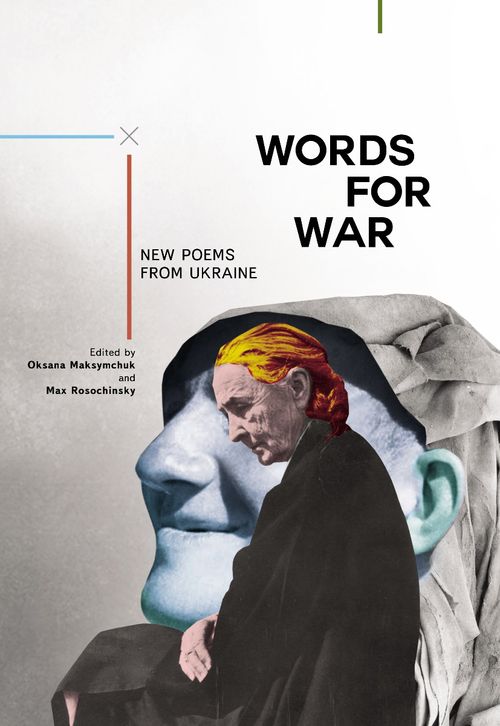Words for war
Anthology of contemporary Ukrainian poetry published in US
The Maidan, the occupation of Crimea, the Donbas war – all this is expressed in the works of Ukrainian writers. Now the Americans also have an opportunity to read this poetry in translation – the anthology Words for War has been publishes in Boston.
It is Oksana Maksymchuk and Max Rosochinsky who hit upon the idea of this project three years ago. Oksana is the author of two collections of poetry (Xenia, Catch) and a translator. A native of Lviv, she has been living in the US since 1997. She teaches at the University of Arkansas now. Max is also a translator and a poet. Born and raised in Simferopol, he later migrated to the US. Doing research at Northwestern University, he focuses on Osip Mandelshtam and Marina Tsvetaeva. “Both of us felt very keenly about the Maidan events, the seizure of Crimea, and hostilities in the Donbas. It is at that time that Academic Studies Press launched a Ukrainian series under the supervision of Kansas University Professor Vitaly Chernetsky. The publishers managed to enlist financial support from Harvard Ukrainian Research Institute (HURI) and the National Endowment for the Humanities (NEH). Projects of this kind are usually loss-making, and our anthology is not an exception. If it is repaid by at least 20 percent, it will be a major achievement. The publishers will be able to channel these nominal funds into another similar project for their Ukrainian series,” Oksana Maksymchuk says.
The book comprises 120 poems by 16 Ukrainian poets. It was at first planned to attract twice as many authors. The number was limited only because sufficiently many poems had been accumulated. Among the authors are also Russian-speaking poets Anastasia Afanasieva, Oleksandr Kabanov, and the married couple of Khersonskyi, as well as eastern Ukrainian writers Serhii Zhadan and Liubov Yakymchuk.
What also matters is the introduction by Ilya Kamisky and the afterword by Polina Barskova. Kaminsky emigrated from Odesa in the mid-1990s. His book, Dancing in Odessa, is considered one of the best English-language poetic books of the 2000s. Barskova has published a monumental work on the anthology of poems about the besieged Leningrad.
The choice of the anthology’s poems is special. Oksana and Max say that when they were choosing the poems, they were trying to present images in diversity: young and old, female and male, alarmed and ironical, tragic and cheerful. Special attention was paid to the images of women in war. Among them are mothers and daughters, female soldiers and victims of war crimes, as well as married couples and lovers, civilians and experts. As many as 29 translators were involved in the process. Each of them has either made a name for him/herself or is an English-speaking poet. The anthology’s design also expresses the themes and character of poems. To design the cover, illustrator Grycja Erde used her work from the “Dead Flowers” series. She created it after participating in the Maidan events.
However, it should be noted that in the US the term “anthology” differs from that in Ukraine – it is reading-book-type publication intended for academic use. Words for War was being made as, first of all, a niche publication. The anthology is used by students and teachers at various US universities. The compilers expect the publication to interest not only the academic readership. As the book is still in print, it is difficult to predict ordinary readers’ attitude to it. Maksymchuk explains that Americans take more interest in the situation in their own country than in military and racial conflicts. Besides, they read almost no poetry, especially in translation. Yet Words for War has already drawn a wide response among experts. “We necessarily come to these poems in a time of war, and that war’s grotesque political dimensions and endless violence are painfully felt on these pages. But these are poems that should command our attention even in a time of peace... These are poems in which the spirit of creative imagination, free expression, emotional clarity, and ethical courage reigns supreme,” Harvard University Professor Stephanie Sandler says.
Besides, the high-profile poetry publications Poetry International (US) and Modern Poetry in Translation (UK) have printed a set of items based on the anthology, while Royal Court Theatre in London has held a reading.
For more details about the anthology and its authors, see the website http://l.academicstudiespress.com/words-for-war.
Newspaper output №:
№13, (2018)Section
Culture





